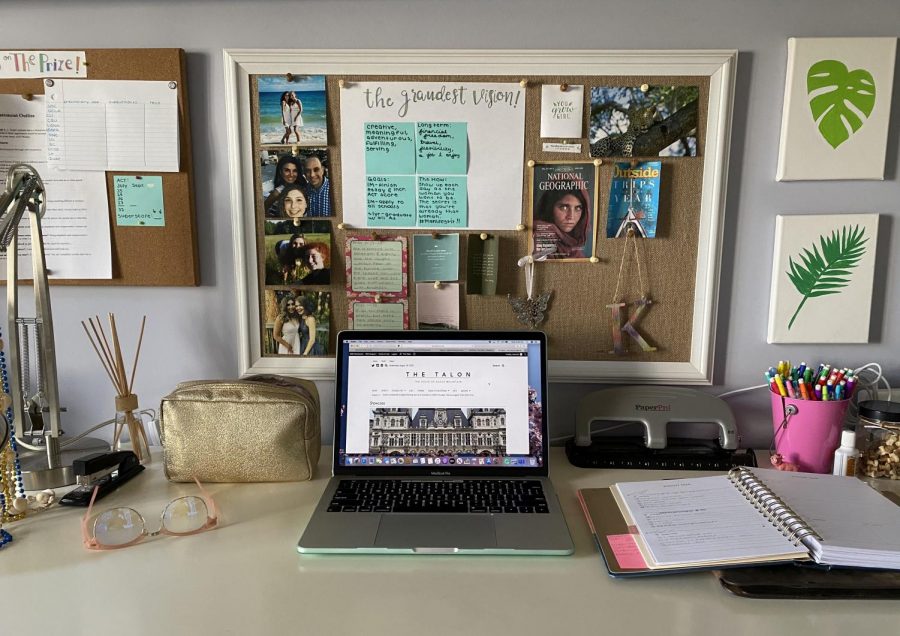Virtually a professional: How to conquer digital learning
Eagles headed home to set up for success online, but many worry this phase of remote learning will last longer than the predicted Aug. 31 end date. As of Aug. 13, Etowah High School switched to a two-week period of digital learning in response to an uptick in COVID-19 cases at the school. Whether Etowah remains digital for two weeks or two months, being prepared with at-home tips and habits for success is important.
- Create a schedule and stick to it.
According to Forbes contributor Bryan Robinson, those working from home (WFH) can optimize their productivity by staying on a schedule.
“Avoid sleeping in or lingering over breakfast and get to work just as if you’re driving across town to your office, although you might be walking into the next room,” Robinson said.
This teaches the brain that there is a specific time to be productive each day, like the way a school day forces students into waking at a similar time each day. Synchronous classes will create a schedule for many students as classes begin at 8:15 each morning.
2. Create a designated workspace.
Attending Microsoft Teams meetings and Canvas Conferences from the comfort of bed might sound nice, but it often leads to lower motivation to do work, and it can even increase sleepiness. This is because when the brain becomes accustomed to an area being designated for an activity, such as sleeping or eating, it can be difficult to grind out an essay or math homework in the same spot. In addition to being a difficult workspace, using a bed for more than sleep can increase the likelihood of insomnia or sleep problems as the body gets used to being awake in that location.
“Separating spaces for work, play and relaxation is critical to helping your brain know when to turn your working mind on, or off,” Capital One’s Career Blog said.
If the space is available, creating a designated area for schoolwork is beneficial for getting into school mode. Find a flat surface, countertop, quiet corner, or whatever distraction–free zone might be around.
3. Limit your distractions.
At school, many teachers ask students to put away cell phones and limit talking during lectures or videos. When students head home, these distractions and others are practically staring one down.
“Promise yourself a reward of 30 minutes of [playing on your phone] after work, if you get a certain project completed,” John Rampton, Entrepreneur Magazine contributor, said.
Using tempting activities as a reward instead of procrastinating can increase productivity by motivating more efficient work. This can also help students hold themselves accountable.
Keeping organized and on top of work without having the routine of heading to school each morning can seem daunting, but with the proper tools, success can happen from home. Be sure to get plenty of rest, and be ready to start synchronous learning at 8:15 each morning.

Hi! I'm Kat, and this is my fourth year on staff. I'm the Editor-In-Chief of the paper, and I absolutely love working with our team to keep the Etowah...

